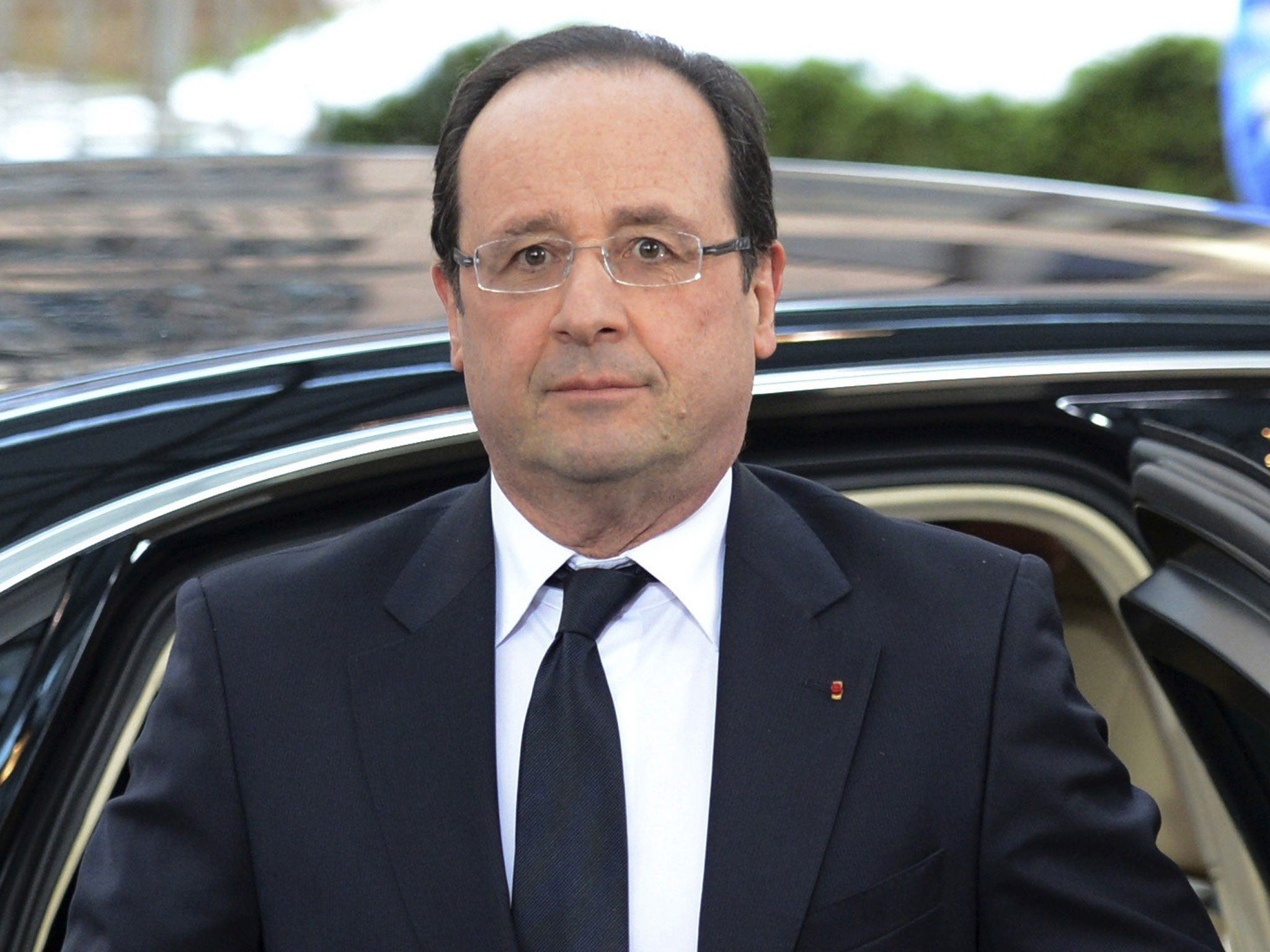François Hollande tells EU: it's time to send arms to Syrian rebels
Britain and France join forces at Brussels summit in bid to lift weapons embargo

Your support helps us to tell the story
From reproductive rights to climate change to Big Tech, The Independent is on the ground when the story is developing. Whether it's investigating the financials of Elon Musk's pro-Trump PAC or producing our latest documentary, 'The A Word', which shines a light on the American women fighting for reproductive rights, we know how important it is to parse out the facts from the messaging.
At such a critical moment in US history, we need reporters on the ground. Your donation allows us to keep sending journalists to speak to both sides of the story.
The Independent is trusted by Americans across the entire political spectrum. And unlike many other quality news outlets, we choose not to lock Americans out of our reporting and analysis with paywalls. We believe quality journalism should be available to everyone, paid for by those who can afford it.
Your support makes all the difference.Britain and France are pushing the European Union to lift an arms embargo to allow them to funnel weapons to Syria's opposition, with President Francois Hollande warning that the threat of chemical weapons meant the moment had come to scale up involvement in the civil war.
David Cameron plans to use meetings at a European Council summit in Brussels today to urge other member states to look again at the terms of the embargo, which currently allows for the supply of armoured vehicles and body armour, but no lethal weapons such as guns and anti-aircraft missiles.
“We can and must go further,” President Hollande said. “Bashar al-Assad clearly wants to use any military means to strike his own people... All of the initiatives to open up the political discussion have been doomed to fail because of Bashar al-Assad. We have to go further because there are some threats as to the potential use of chemical weapons. Therefore we must take our responsibilities.”
While there has been little proof that Assad is planning to use chemical weapons against his own people, US officials have expressed concern that the regime could deploy them if they feel cornered by opposition forces.
Mr Hollande said he and Mr Cameron will press other EU members to lift the arms embargo before it comes up for discussion again in May, but they will likely face opposition from nations including Germany, which fear intervention will fuel the civil war and further destabilise the region.
Mr Cameron had raised the prospect this week that Britain could break the arms embargo, saying that without agreement to amend the ban “we might have to do things in our own way”. A British government spokesperson said they were keen “to inject political momentum” into efforts to end the two-year Syrian civil war, in which more than 70,000 people have been killed.
Russia's Foreign Minister, Sergei Lavrov, has warned that supplying weapons to the opposition could be in breach international law. The French foreign minister, Laurent Fabius, argued earlier that the military balance between Mr Assad's forces and the rebels was shifting because the Iranian regime and the Russians were directly arming government forces.
France and Britain led efforts to intervene in Libya in 2011, but they will probably face stiffer opposition over Syria, with nations fearful that the weapons could end up in the hands of Islamist extremists.
Mr Hollande was speaking on the sidelines of a European Union summit, where leaders were debating whether tough austerity measures are helping to drag Europe back to prosperity, or condemning millions to unemployment and hardship.
Before the leaders arrived, thousands of anti-austerity protesters gathered in the snow to demand an end to policies which they say are causing misery for Europe's citizens.
“It is difficult for everyone, the rich get to be rich, rich, rich, while the poor are poor, poor, poor,” said Marie Blanche Pietta, 50, who has seen the Belgium nursery where she works lose its government funding.
The leaders are not expected to make any binding decisions at the summit, but the communiqué will be examined for signs that pro-austerity leaders such Germany's Angela Merkel and Mr Cameron are willing to soften their stance in the face of widespread discontent in Europe.
Join our commenting forum
Join thought-provoking conversations, follow other Independent readers and see their replies
Comments